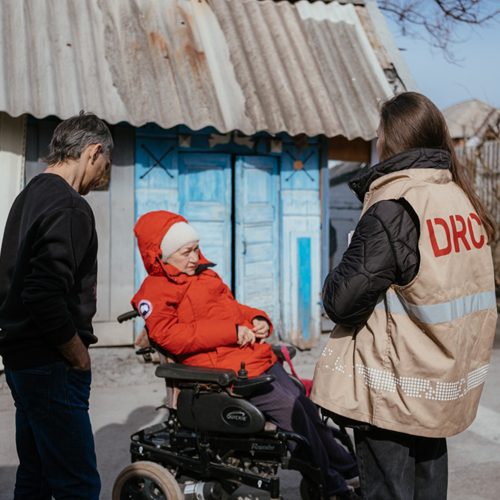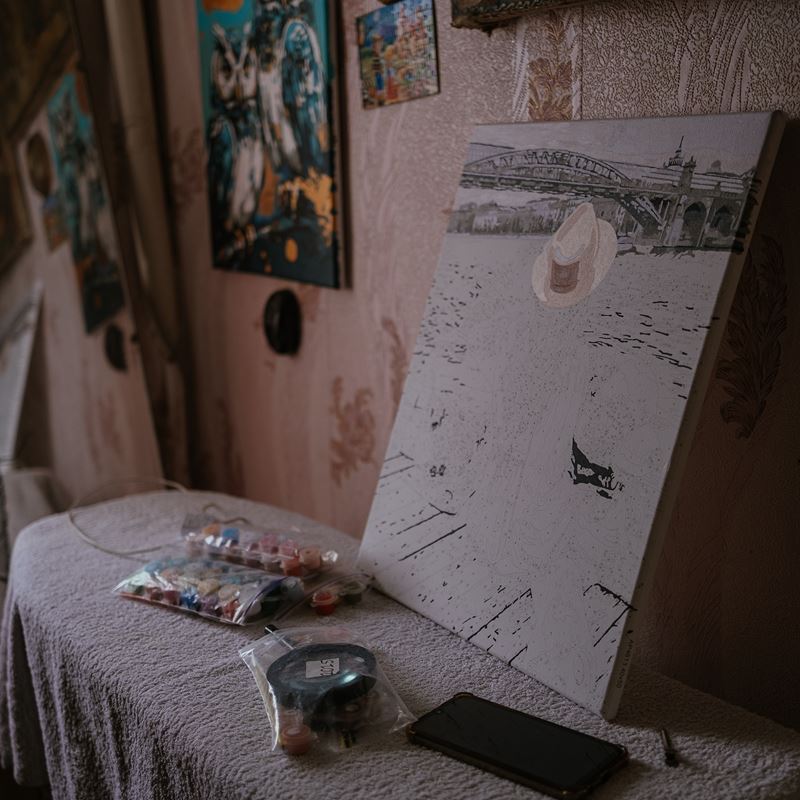Ivan and Tanya met nearly twenty years ago in a sanatorium. He has lived with cerebral palsy since birth; she was diagnosed with polyarthritis as a child. From friendship grew a strong partnership, rooted in care and shared experience. When the war reached Donetsk in 2014, Tanya left her home and moved to Sloviansk to live with Ivan. Years later, in April 2022, they were forced to evacuate together.
Finding housing was unexpectedly difficult. “The landlord refused to rent us the flat,” Ivan says. “He said we wouldn’t be able to keep it clean, and that the wheelchair would ruin the floors.”
They turned to local authorities but were offered an apartment on the third floor — without a lift or ramp. “I couldn’t move inside without help. The steps, the uneven ground — it was too painful,” Tanya recalls. Eventually, the couple returned to Sloviansk, even though it didn’t feel safe.
Small changes, big impact
Back home, daily life remained complicated. The entrance to their house had no ramp, and the yard was uneven and full of holes. Tanya depended entirely on Ivan to push her wheelchair. When they reached out for help again, the mayor of Sloviansk connected them with DRC. “There was no dedicated programme at the time for adapting private homes,” says Anton, a DRC Shelter and Settlement Assistant. “But we knew they needed help, and used flexible donor funds to respond.”
DRC supported the couple with basic improvements: levelling the ground in the yard, adapting the entrance, and widening the front door to make it easier for Tanya to enter and leave independently. “Now I can move around without fear of falling,” she says. “It’s the first time I’ve felt this kind of comfort in years.”





